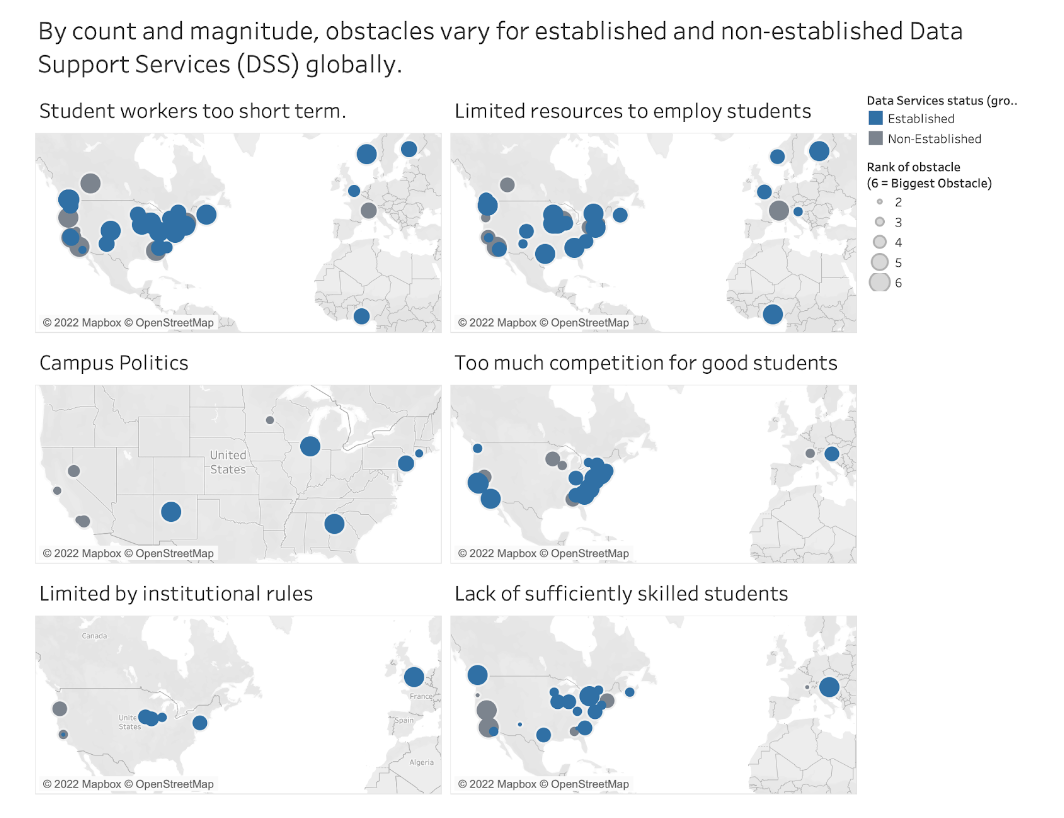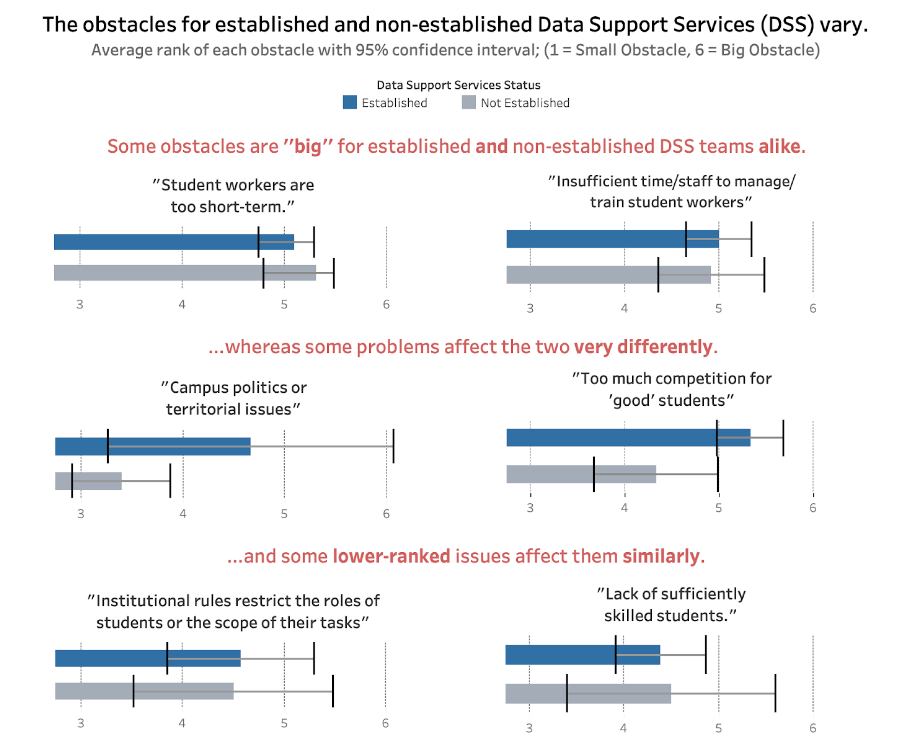More Information
The UCLA Library DataSquad is a team of undergraduate students who support data-related projects at UCLA. As part of the UCLA Library Data Science Center, the DataSquad works with students who need help with their data projects and highlights the work of researchers using data at UCLA.
One of the most important tools a DataSquad member can have in their arsenal is being open to new opportunities.
This was the case when Student Data Science Consultant Will Foote took on a Tableau project with DataSquad International(opens in a new tab), the nascent global organizing group for the DataSquad. He was not the most skilled on the team in Tableau (data visualization software), nor had he used it much in a professional setting. Nonetheless, he felt up to the task.
Will has been working with Tim Dennis of the DSC and Paula Lackie of the Carleton College DataSquad, who are leaders of the DataSquad International team. He was tasked with cleaning and visualizing survey data to explore what the current obstacles to employing students in data support services (DSS) are around the world.

The data analysis looked into the relationship between these obstacles and variables such as location, whether or not the DSS team employed students already and whether or not the DSS team was established or in the process of doing so. Will leveraged R (statistical programming language) to clean the data to work towards the vision Paula and Tim had for the project.
Cleaning and processing data in R wasn’t a new task for Will, who had done this many times in his statistics coursework. But doing so in Tableau with an expectation of creating publishable results was.
To accomplish this task, Will had to do something that every student data science consultant must: communicate and be able to learn on the fly. Will was in frequent correspondence with Tim and Paula throughout the project to get advice and feedback on the work that had been completed to make sure all parties’ visions aligned. Even more often, Will was forced to learn new functionalities of Tableau that he hadn’t used before.

For Will, it was about making connections between the concepts he’d learned in other courses and programming languages in order to decrease the perception of “newness” of the project. Seeing the problem as transitioning between similar languages made it much easier to tackle than imagining it as learning an entirely new one.
Will is in the final stages of the analysis, which will be used as material outside of just the research sphere. Upon the project’s completion, Paula, Tim and the rest of the DataSquad International team plan to synthesize Will’s analysis with their own recommendations about how to best address obstacles to student employment for DSS organizations. DataSquad International will be publishing these findings on their website and at upcoming European and US conferences this summer.
